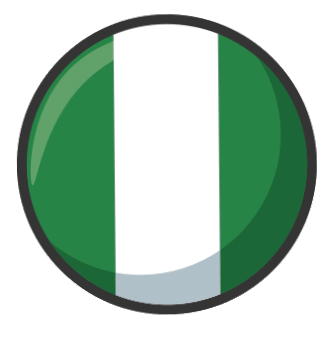
The journey to Nigeria’s independence was a complex tapestry woven by a diverse array of individuals, each with unique contributions. Their unwavering determination, intellectual prowess, and unwavering belief in a free Nigeria fueled the nation’s struggle for self-governance. This article delves into the lives and legacies of some of the key figures who played pivotal roles in shaping Nigeria’s destiny.
Herbert Macaulay: The Father of Nigerian Nationalism
Herbert Macaulay, often hailed as the “Father of Nigerian Nationalism,” was a pioneering figure in the struggle for independence. Born in 1864, Macaulay was a grandson of Bishop Ajayi Crowther, the first African bishop of the Anglican Church in West Africa. His early exposure to Western education and his experiences as a civil servant ignited his passion for social justice and political empowerment.

Macaulay founded the Nigerian National Democratic Party (NNDP) in 1923, making it one of the earliest political organizations in Nigeria. Through the NNDP, he advocated for the rights of Nigerians and challenged British colonial rule. Macaulay’s unwavering stance against discriminatory policies and his commitment to self-determination earned him the respect of many Nigerians, cementing his legacy as a founding father of the nation.
Nnamdi Azikiwe: The Zik of Africa
Nnamdi Azikiwe, affectionately known as “Zik,” was another prominent figure in Nigeria’s independence movement. Born in 1904, Azikiwe was a prolific writer, journalist, and politician. His early career as a journalist allowed him to travel extensively, exposing him to different cultures and political systems.
Azikiwe’s experiences abroad fueled his belief in the possibility of a self-governing Nigeria. He returned to the country in the 1930s and became a leading figure in the nationalist movement. Azikiwe’s charisma, oratory skills, and intellectual prowess made him a popular and influential leader. He served as Nigeria’s first President from 1960 to 1966, and his legacy continues to inspire generations of Nigerians.
Obafemi Awolowo: The Sage of Iwo
Obafemi Awolowo was a visionary leader and a key architect of Nigeria’s independence. Born in 1909, Awolowo was a highly educated individual with a strong belief in the potential of Nigeria. He founded the Action Group (AG) in 1951, a political party that advocated for regional autonomy and economic development.
Awolowo’s leadership was instrumental in securing the creation of the Western Region, one of the three regions that formed Nigeria’s federation. He served as the region’s premier from 1954 to 1960, overseeing significant economic and social progress. Awolowo’s intellectual brilliance, strategic thinking, and unwavering commitment to Nigeria’s unity earned him the respect of many, and he is often referred to as the “Sage of Iwo.”
Ahmadu Bello: The Sardauna of Sokoto
Ahmadu Bello, the Sardauna of Sokoto, was a prominent leader of Northern Nigeria and a key figure in the independence movement. Born in 1910, Bello was a member of the Fulani aristocracy and a strong advocate for the interests of the North.
Bello founded the Northern Peoples Congress (NPC) in 1951, a political party that dominated Northern Nigerian politics. He served as the region’s premier from 1954 to 1966, overseeing significant development projects and promoting the interests of the region. Bello’s leadership was crucial in ensuring the unity of Nigeria, and his legacy continues to be celebrated in the North.
Anthony Enahoro: The Man Who Moved the Motion
Anthony Enahoro, a prominent nationalist leader, played a pivotal role in the struggle for independence. Born in 1923, Enahoro was a member of the Action Group and a strong advocate for self-government.
In 1953, Enahoro made a historic move by introducing a motion in the House of Representatives calling for Nigeria’s independence. This bold step marked a turning point in the independence movement and helped to galvanize support for self-determination. Enahoro’s courage and conviction earned him the admiration of many Nigerians, and he is often referred to as the “Man Who Moved the Motion.”
Other Notable Figures
In addition to these prominent figures, many other individuals contributed significantly to Nigeria’s independence movement. These include:
- Alhaji Abubakar Tafawa Balewa: Nigeria’s first Prime Minister, who played a key role in negotiating independence.
- J.S. Tarka: A nationalist leader from the Benue region who advocated for regional autonomy.
The struggle for Nigeria’s independence was a collective effort, and the contributions of these individuals cannot be overstated. Their unwavering determination, intellectual prowess, and unwavering belief in a free Nigeria paved the way for the nation’s self-governance. Their legacies continue to inspire generations of Nigerians, reminding us of the importance of unity, resilience, and the pursuit of justice.







Add Comment